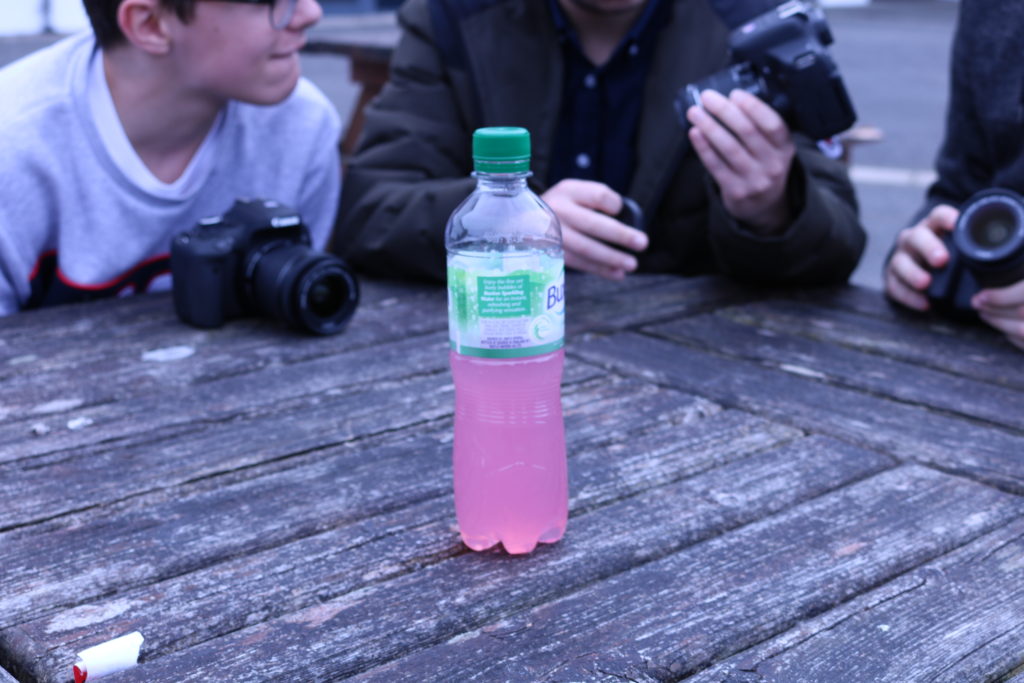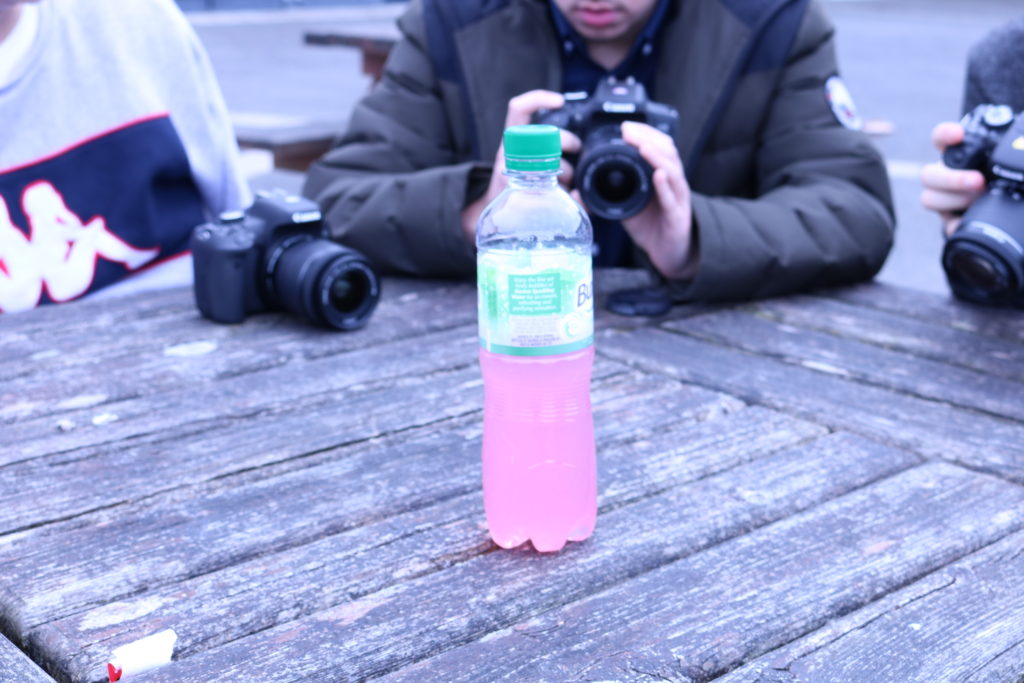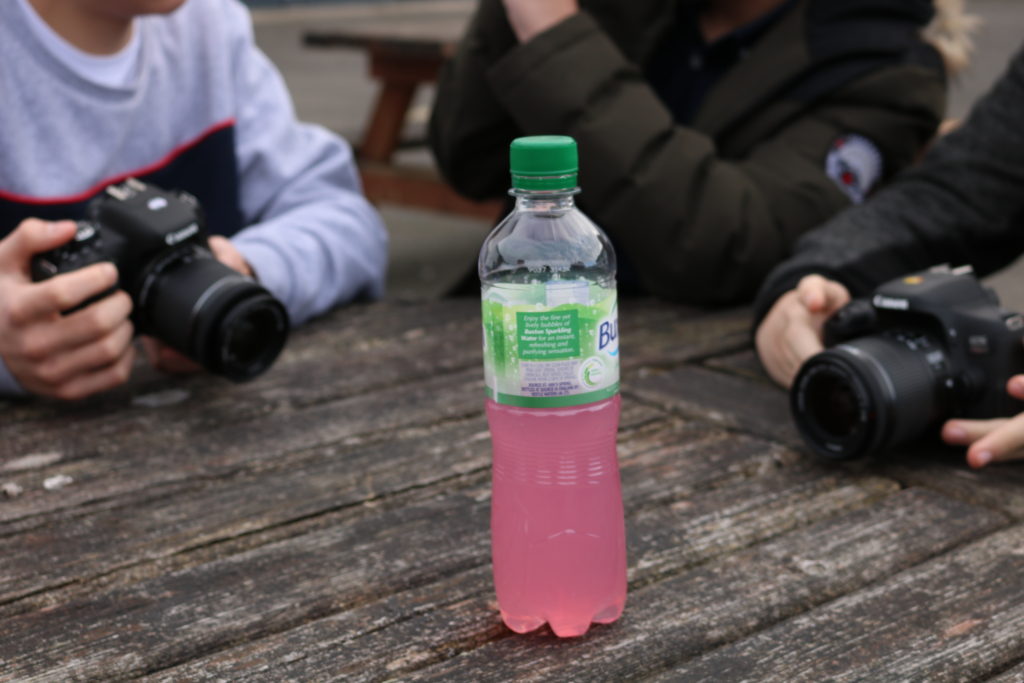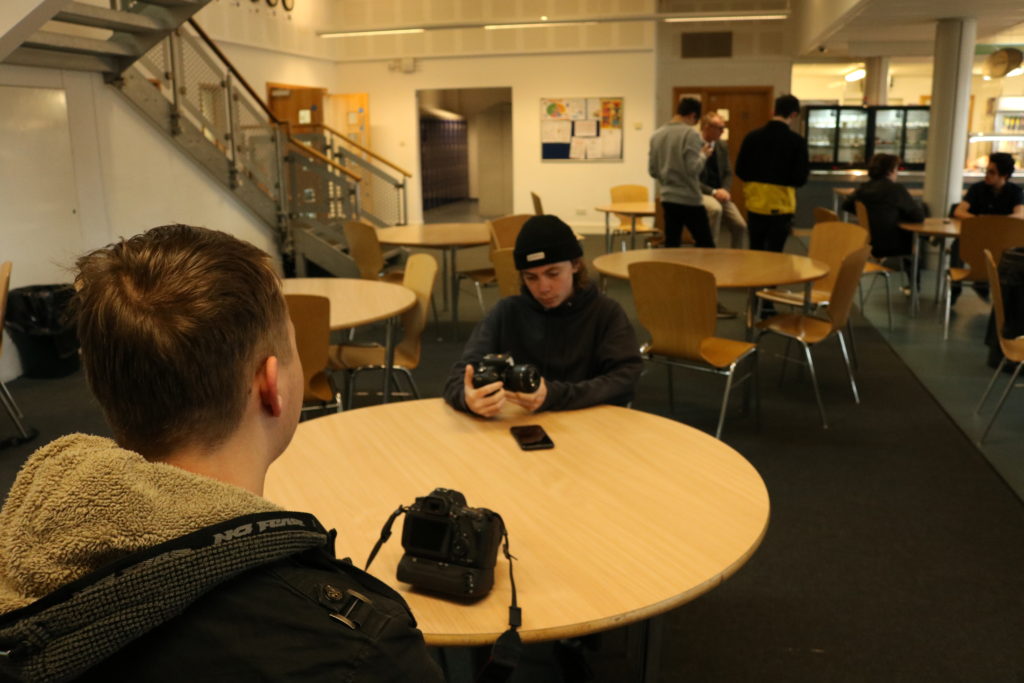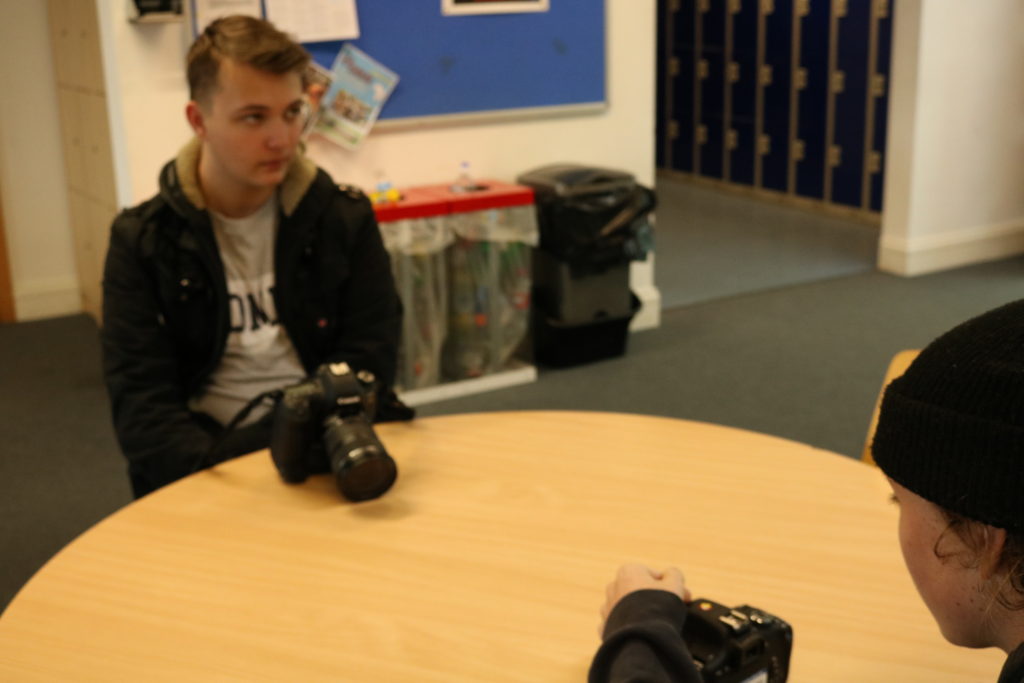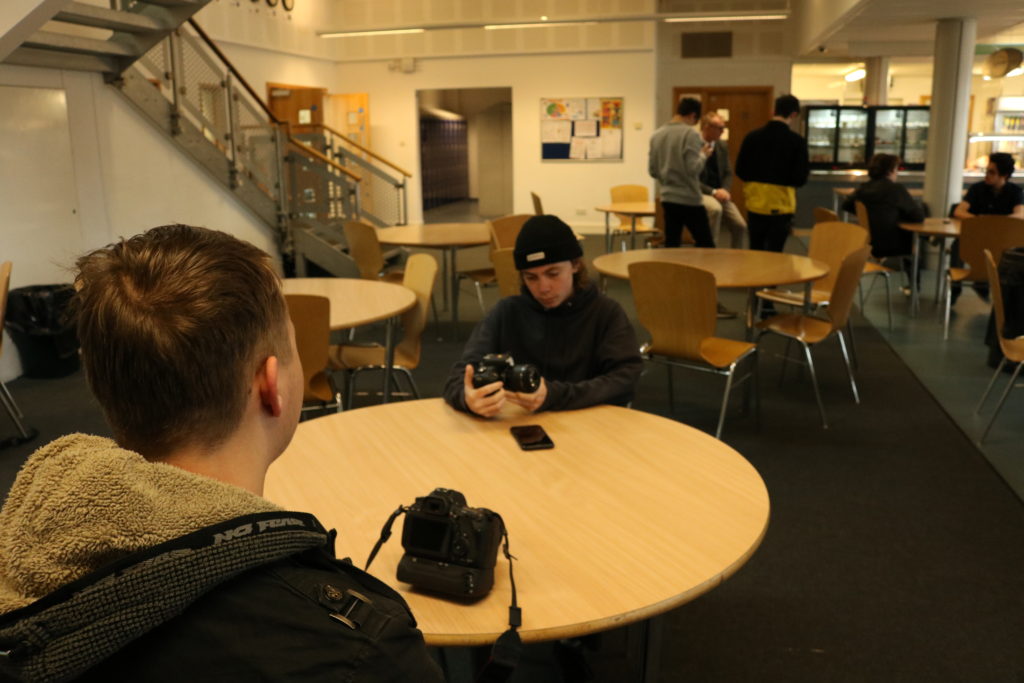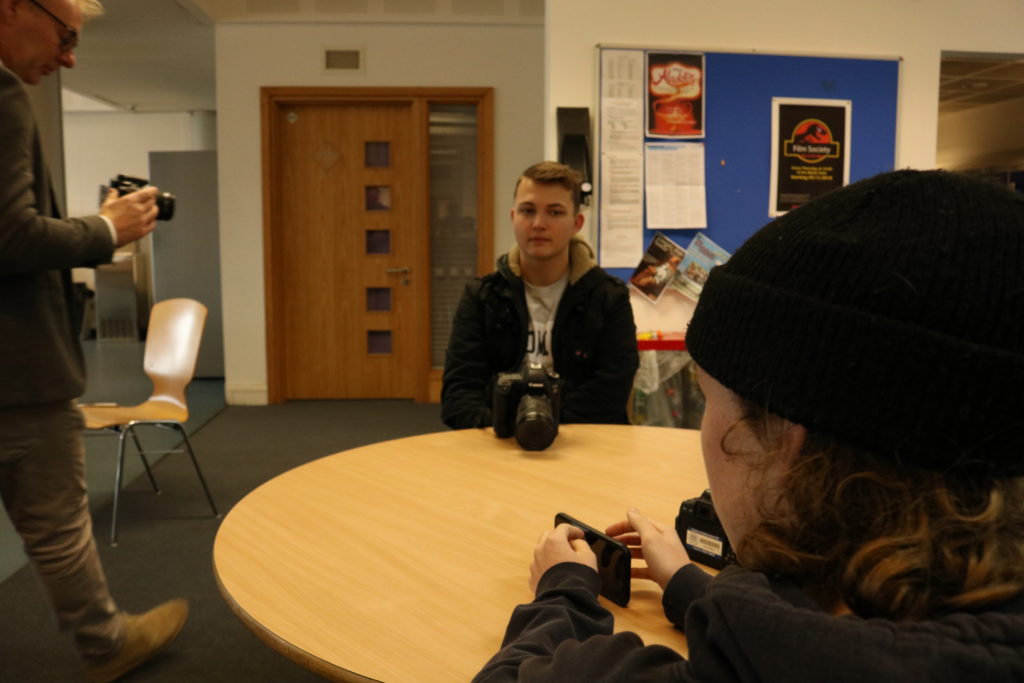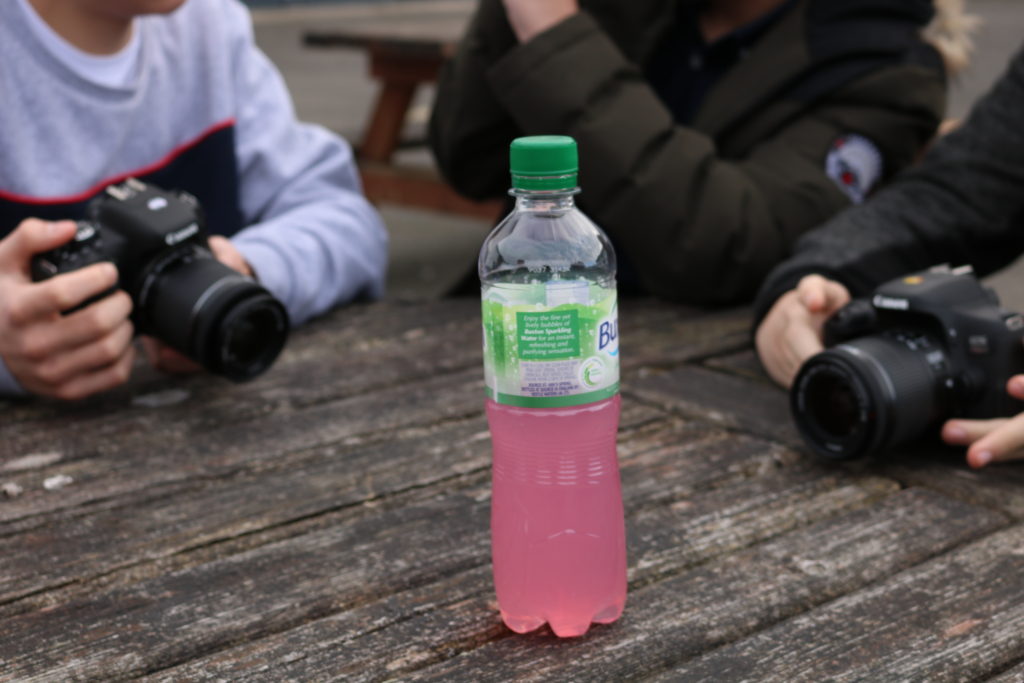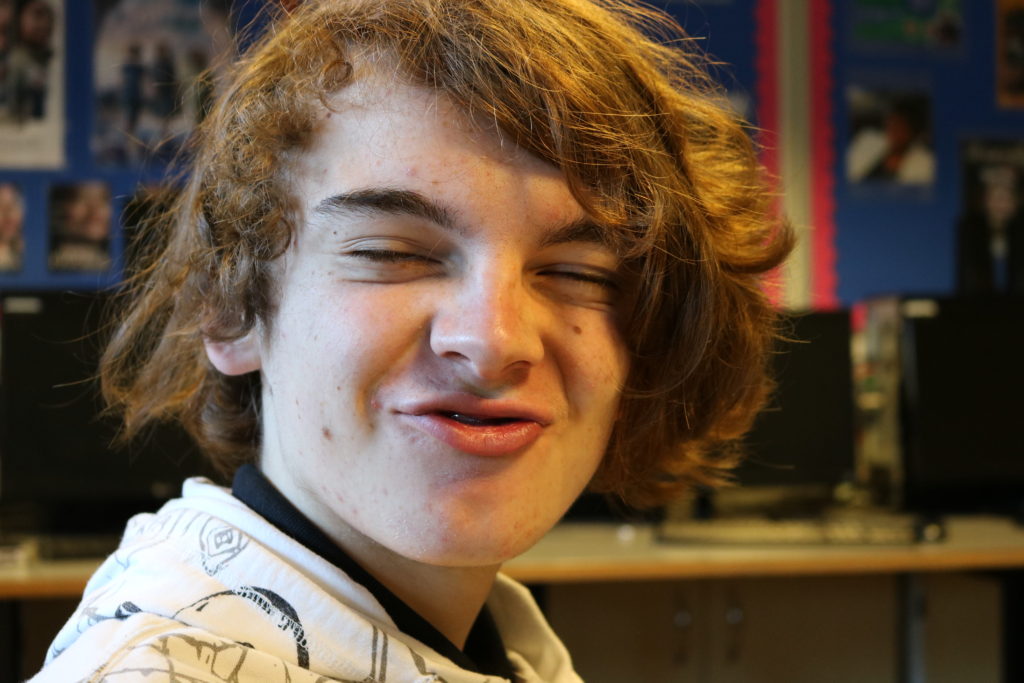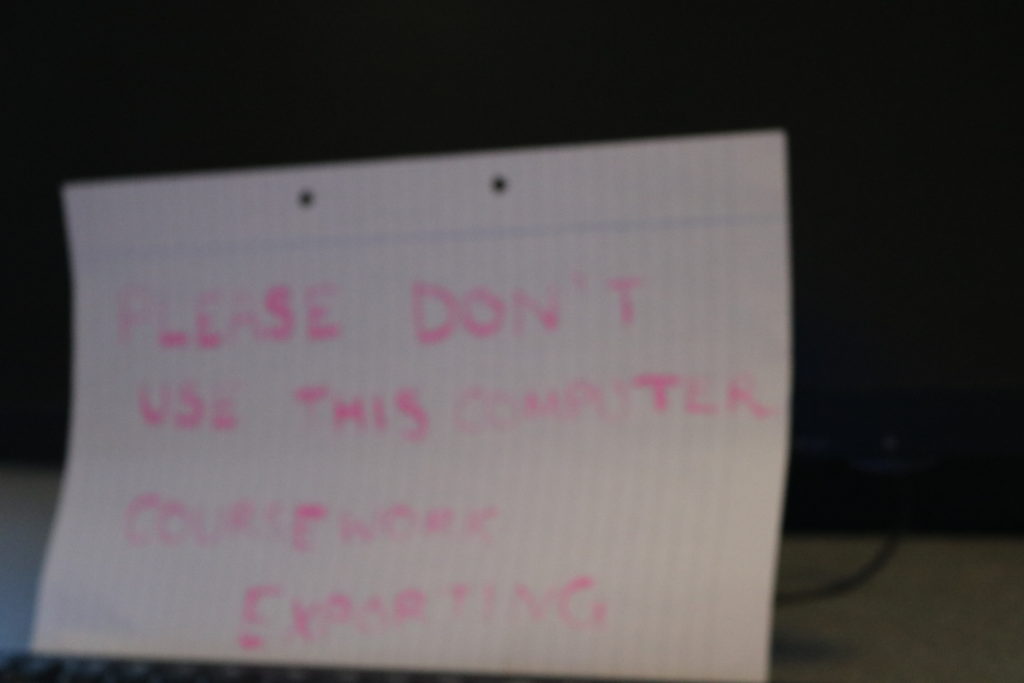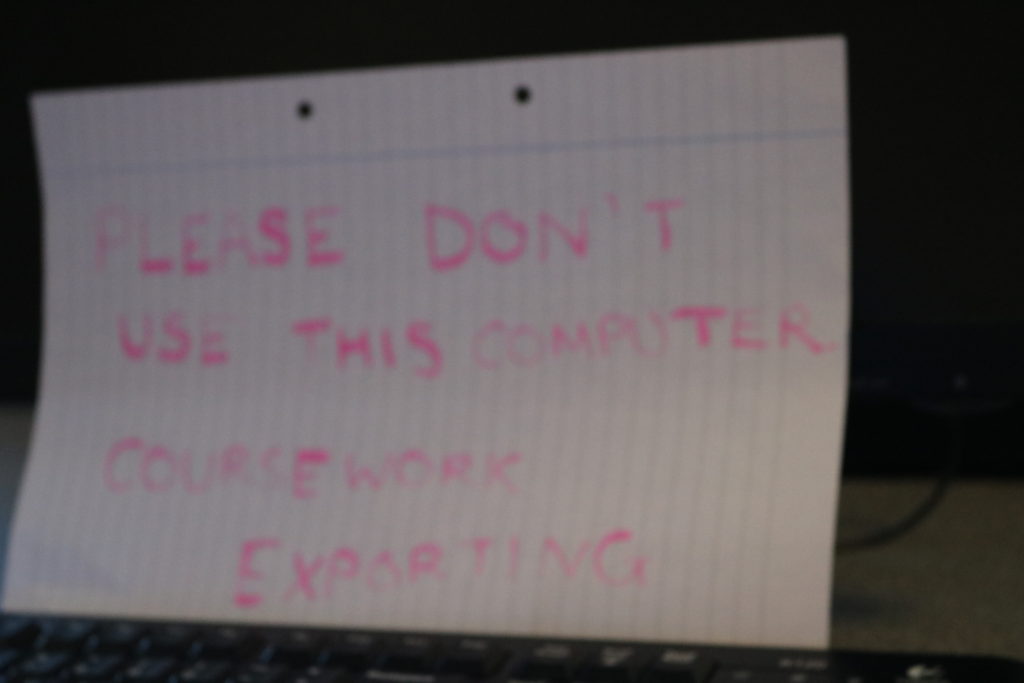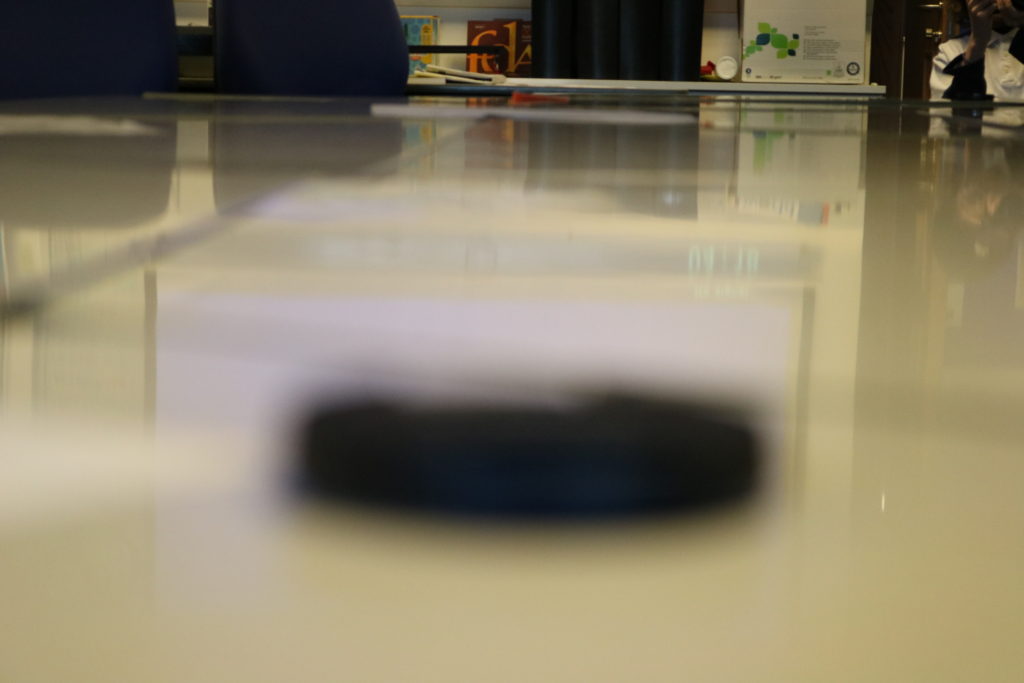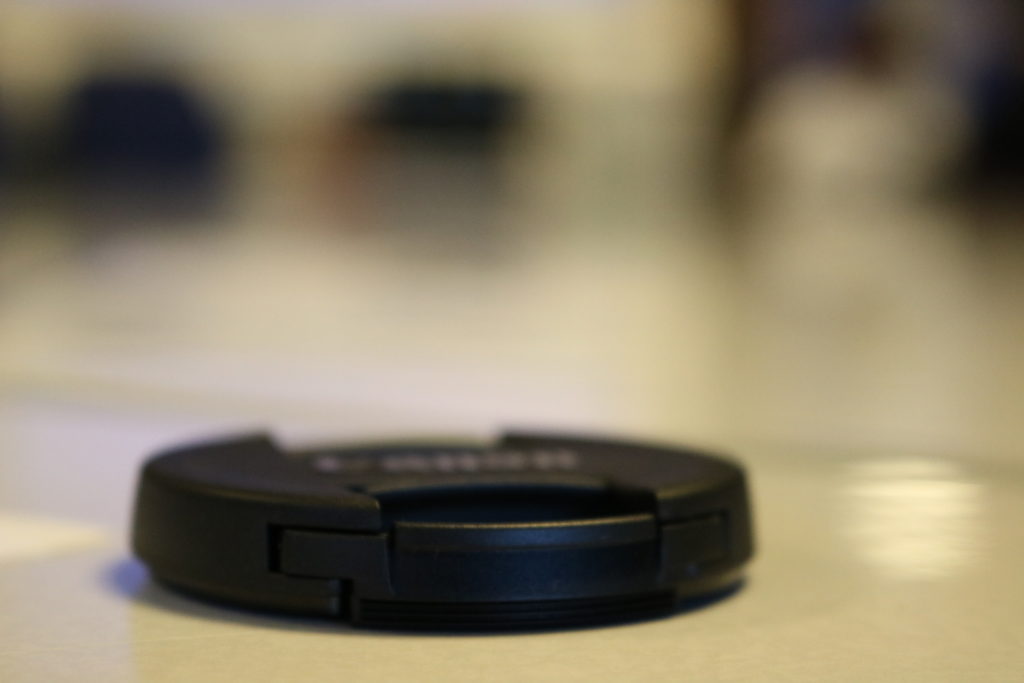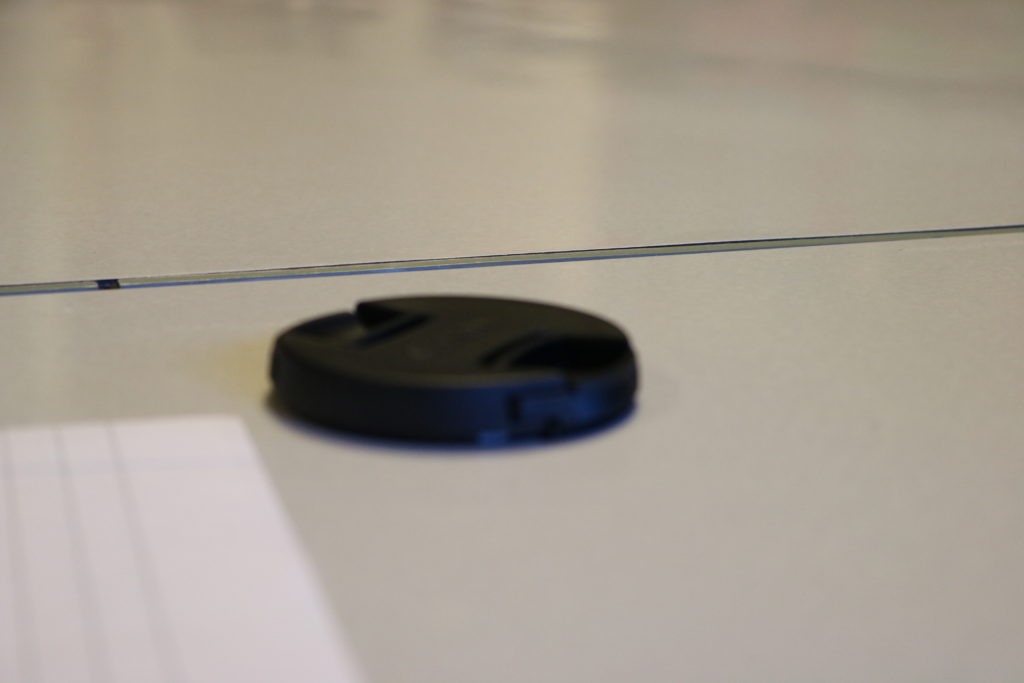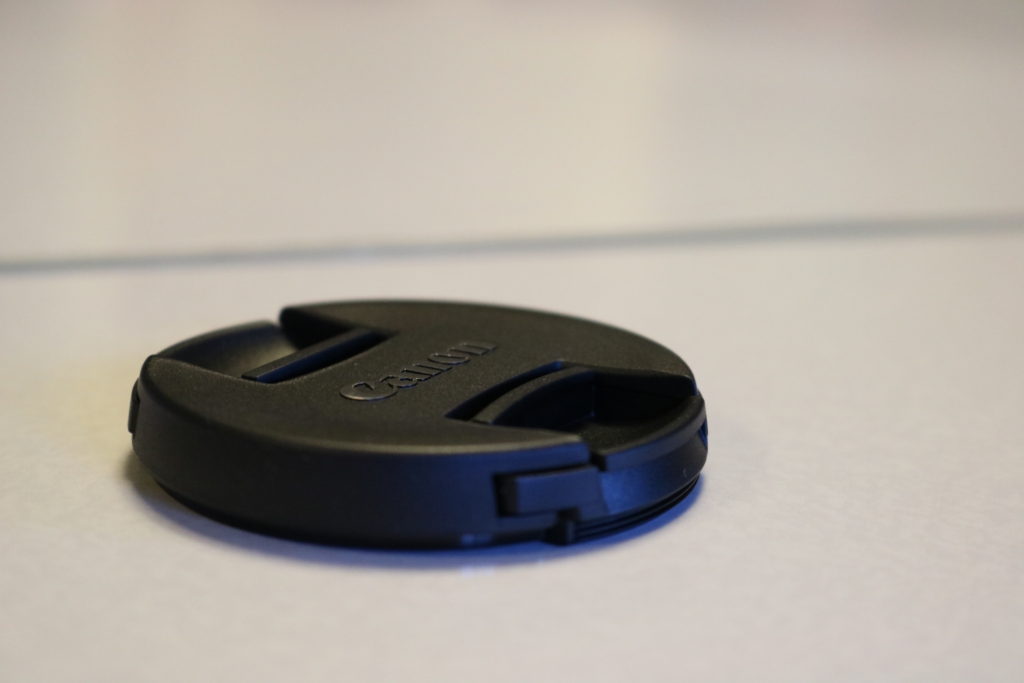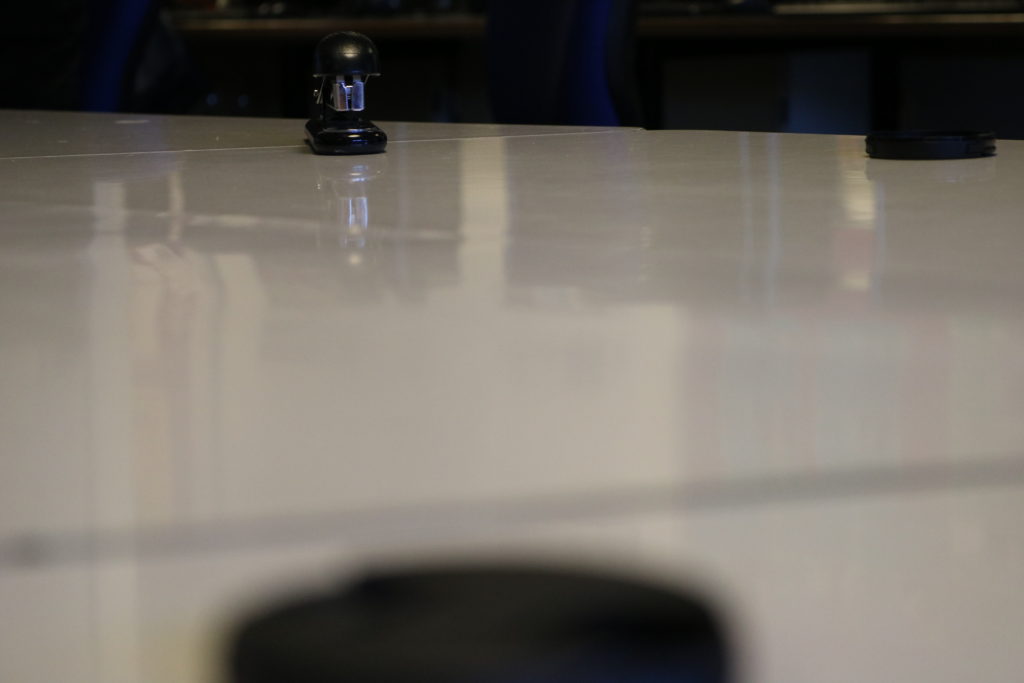Tasks
First of please try to make your blog look like a creative document that reflects you and your creative ability. At present, it is used more as a repository to drop in word docs, pdf’s etc, so from now please write and upload direct to the blog.
As a start can I ask you all to (individually) make a Header for this Film Studies blog in photoshop? You need to make a new document in photoshop that is 1260 x 240 pixels, create a Film Studies Header, save as a JPG and email me it to me. As Ms Magowan is away on a Film Studies course, you can complete this over the next few lessons.
Next please make sure that you have uploaded all the photos that you have been taking with me in the last couple of Thursday lessons as a Gallery post. Please upload all of your images along with some annotation that shows what you have learned – ISO, Aperture, White Balance, Shutter Speed.
Moving Forward / Moving Image?
Coventional shot sequencing
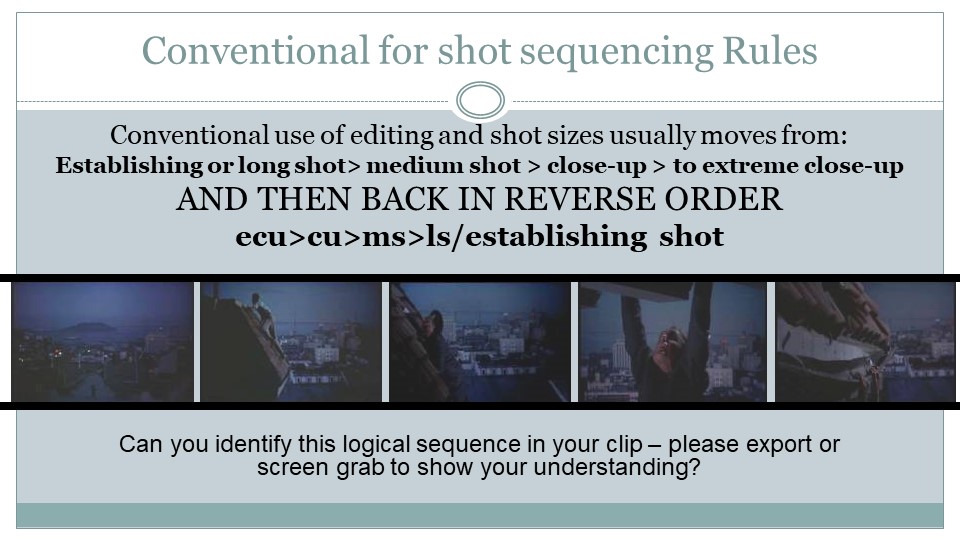
Take 6 pictures of different shot size to show you understand conventional shot sequencing. Upload them to your blog as a gallery. Import these pictures into Premiere and edit together. Export this edit (H264 & match bit rate high) . Upload to your own (and new) Film Studies Youtube account (you set it up yourself). Embed the link into your blog.
TASK: embed an extract from a film that shows conventional shot sequencing
Next I would like you to revisit the skills that we started last week, which was creating a dialogue (shot/reverse shot) sequence. So repeat the exercise that we did last week, only this time plan it out in more detail. You will need:
Two characters, a setting, a short dialogue, a camera (you can use your phone).
Record another set of STILL IMAGES, specifically using: wide angle master shot, a series of external reverses, a series of internal reverses, a single POV shot and an insert shot. Upload your images to your blog and make sure they are on one of your network drives so that we can upload them to a video editing programme next week.
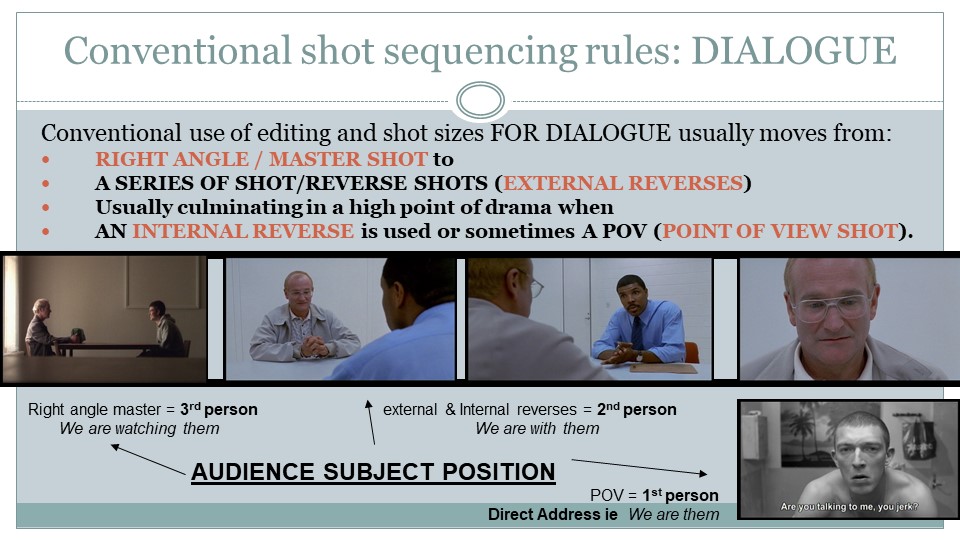
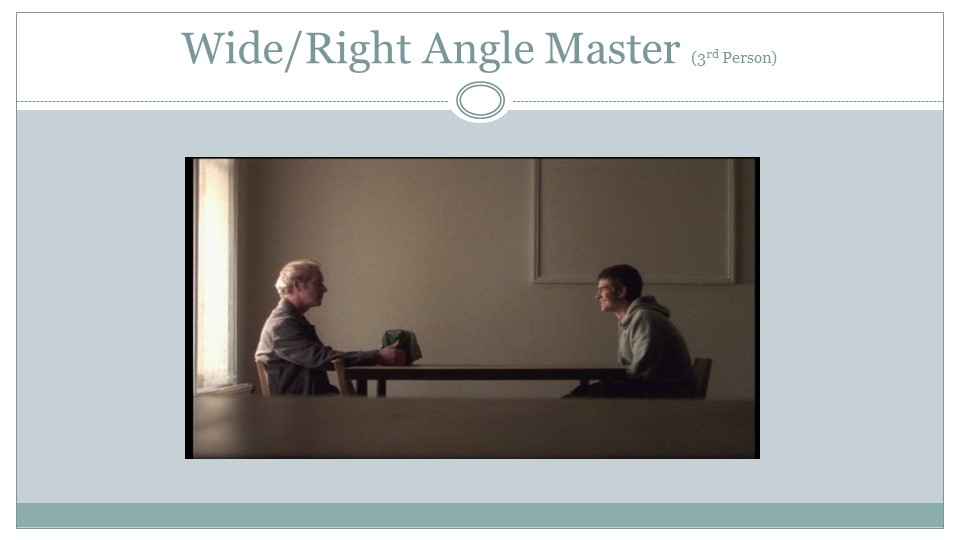
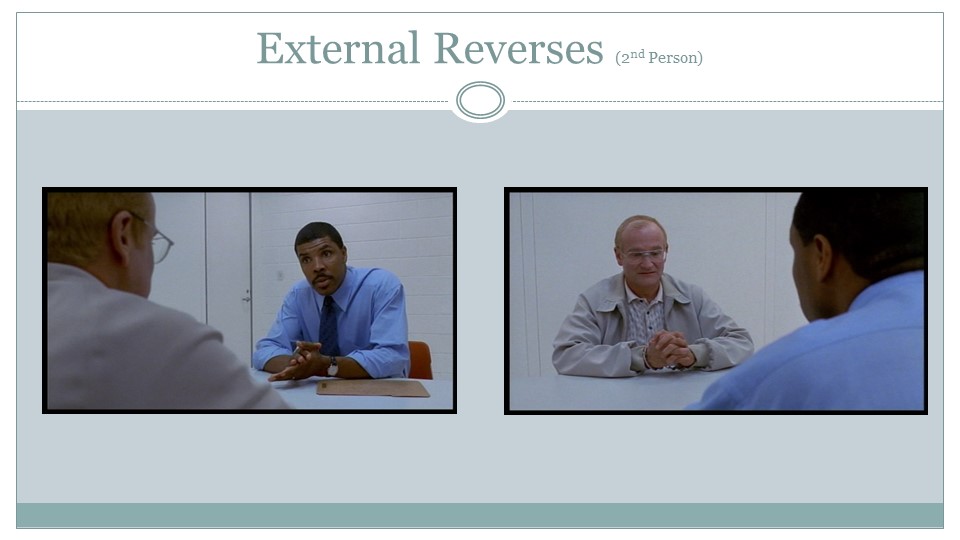
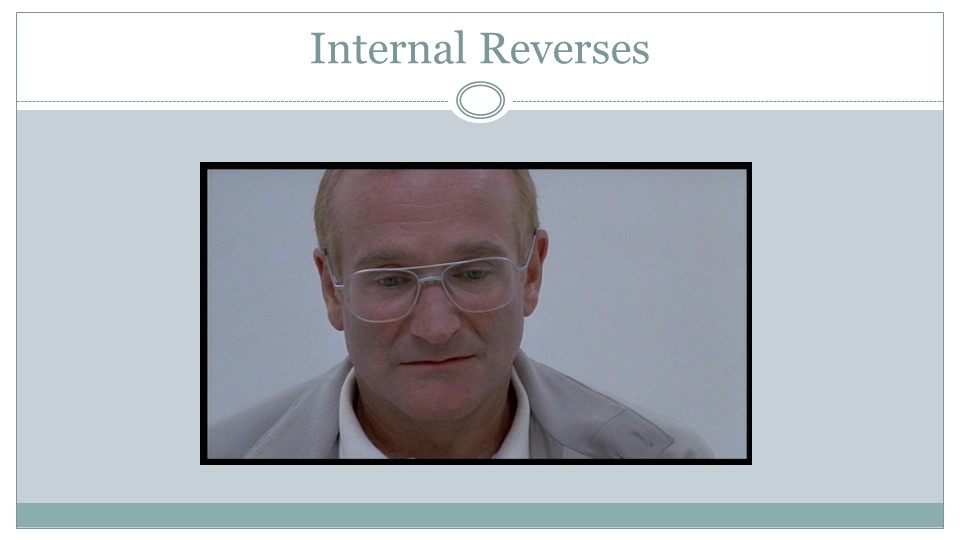
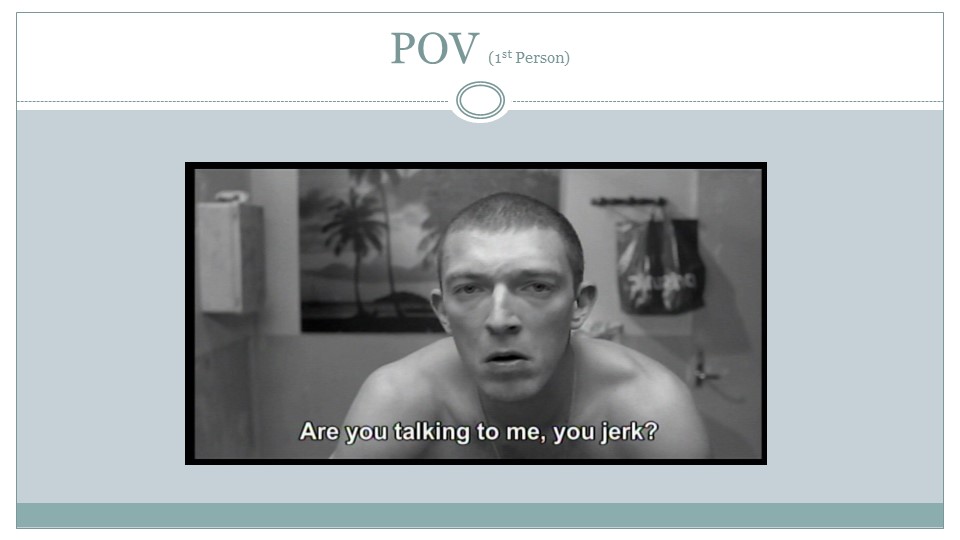
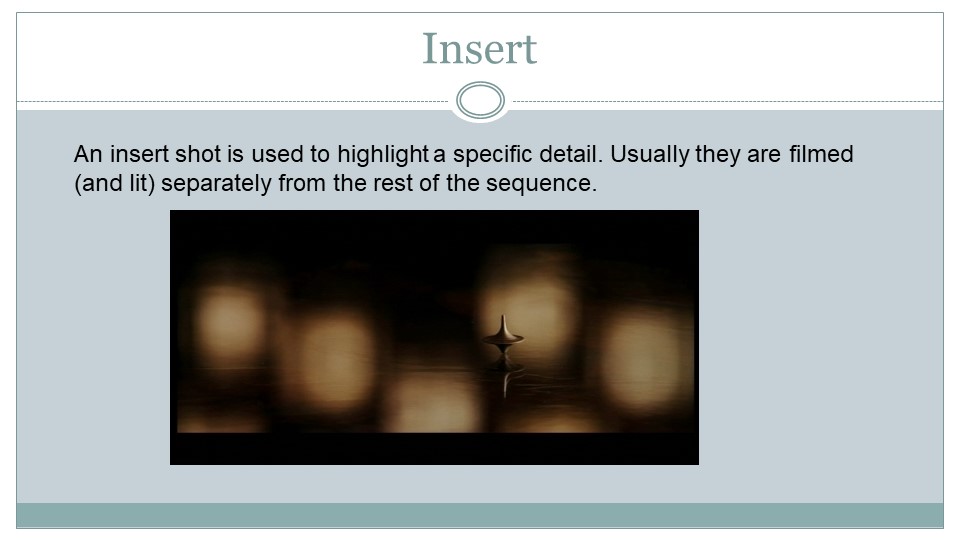
Next we will try to record some video, as shot reverse shot, we will then try to edit it together in Premiere, we will then export this edit as an AVI and upload to a YouTube account (you will need to make one that is JUST for Film Studies) and then we will embed the Youtube video in our blogs. This will take a couple of lessons. To help you see the images below
Favourite soundtrack
My Favourite soundtrack / film score is from Avengers Infinity war (Anthony and Joe Russo, 2018) the composer Alan Silvestri also composed music for the other Avengers films and for “Captain America : The First Avenger” (Joe Johnston, 2011) That made him the first composer to score more than one movie in the “Marvel Cinematic Universe” (MCU for short). It first caught my attention because of how well Silvestri builds tension. I will admit it is not the most individual however it feels like a complete classic of this generation. Below is a link to one of the best pieces of music from the film.
The Story of Film: An Odyssey 3
1) According to Cousins, who was the leading exponent of French Impressionist Cinema?
Abel Gance
2) Name one of his films and explain what was remarkable about the production techniques used.
Napoleon (dir. Abel Gance, 1927) – the camera constantly moved in the film, which was practically unheard of at that time.
3) What is Surrealist Cinema, and who were its two leading directors in the silent era?
Surrealist Cinema draws upon irrational imagery, and presents the world and strange. Key directors during this period were Salvador Dali and Luis Bunuel.
4) Name two films with directors and dates.
Un Chien Andalou (dir. Luis Bunuel and Salvador Dali, 1929)
Age of Gold (dir. Luis Bunuel, 1930)
Sound Influences
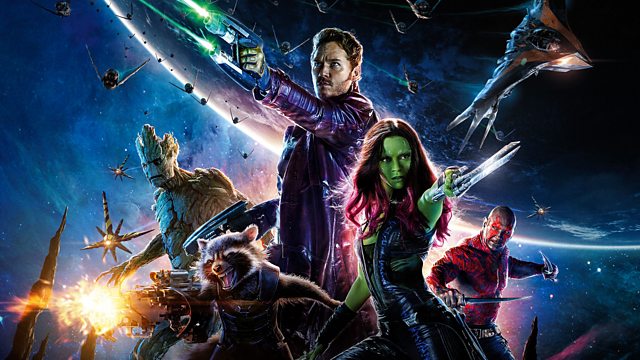
I like this soundtrack because its and action film with a more classic vibe due to the music and the fact that Quill never really left the 80’s because he was taken from earth at the age of 8.
i have been very inspired by the soundtrack in ‘The Hobbit an unexpected journey’ which was directed by Peter Jackson. I was really moved by the soundtrack in this film because of themes that run throughout the film for example there is the theme-tune of the shire and this theme is reintroduced whenever Bilbo refers back to his shire and his life before his journey. The theme-tune helps to remind the audience of the peaceful shire.
Story of film and Odyssey parts 1 and 2
- What was the name of the first film made by Lumiere Brother of the Cinema and when was this?
-Sortie des Usines Lumière à Lyon (1895)
- What is the “Phantom ride”?
-Phantom ride was filming technique used where a camera would be on the front of a train or vehicle giving the look of a flying fast moving shot
- What was ground-breaking about the silent films “The Sick Kitten” and “Life of an American Fireman”?
- The sick Kitten used the close up shot for one the the first times in cinema history and life of an American fireman was notable for its synthesis of numerous innovations in film technique that had occurred in the late 19th and early 20th centuries. Specifically, Porter builds a continuous narrative over seven scenes, rendered in a total of nine shots.
- What was the first film star in Hollywood?
- Florence Lawrence, a Canadian-American stage performer and film actress. She is often referred to as “The First Movie Star,” and was the first film actor to be named publicly.
- Who directed Birth of a nation and why is this film now considered to be controversial?
- D.W. Griffith and it is controversial as the film is credited as one the events that sparked the reformation of the ku klux klan.
Episode 2:
- Who were buster Keaton, Charlie Chaplin and Harold Lloyd and why where they so important to the success of Hollywood in the silent era.
- These people where some of Hollywood’s first film stars, all melded music with silent film and comedy to create a distinct type of cinema that got all these men famous, Chaplin was interested In performance whereas Keaton while also the same was very often doing dangerous stunts in his films.
- Name a film (with date) staring each of the above.
- Charlie Chaplin : The great dictator (1940)
- Harold Lloyd : Safety last (1923)
- Buster Keaton : The General (1926)
- Who were the Italian and French equivalents of Charlie Chaplin?
- Italian: Toto
- French: Jacques Tati
My Favourite Film Score
My favourite film score is from Jurassic Park (1993). This was composed and conducted by John Williams. John Neufeld orchestrated most of the cues while Alexander Courage orchestrated three and Conrad Pope partially orchestrated two others. The name of this film score is Jurassic Park: Original Motion Picture Soundtrack and the reason I like it is because of the way it creates a childlike sense of wonder and fits into the fantasy adventure tale.
It’s use of soaring strings and dramatic brass allows an ominous tone to represent the danger that lurks within the park. The suspense it creates conjures up a feeling of adventure and adversity which is precisely why I think it’s one of the best film scores made. It’s also number 44 in the “Top 50 Best Film Scores of all Time”.
https://www.youtube.com/watch?v=RDd6gUe8zE4
White balance
This is the original photo with a slightly higher shutter speed due to the outside light balance being different to instead

This is the same photo, but with the white balance as ‘daylight’. This setting has the lowest colour balance, the image is darker and can be considered more warm colours

This is the same photo with the white balance as ‘white fluorescent’. Since this setting has the highest colour temperature, the image looks much brighter and there is too much light in the image

Finally, the setting ‘cloudy’ is used to give the photo a bright tinge. This has a higher colour temperature so the image is quite bright but not to the point where it affects our ability to view the photo

Establishing shot, shot-reverse shot and 180 degree rule
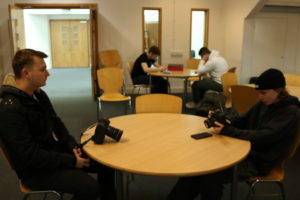
Establishing shot shows character seemingly starting to converse. These are typically mid/long shots which set the scene by showing the characters and setting right away
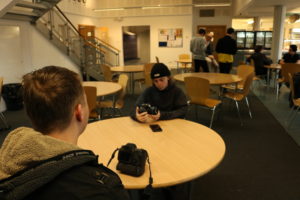
This is the shot
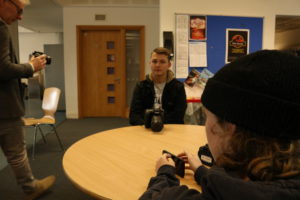
Reverse shot


